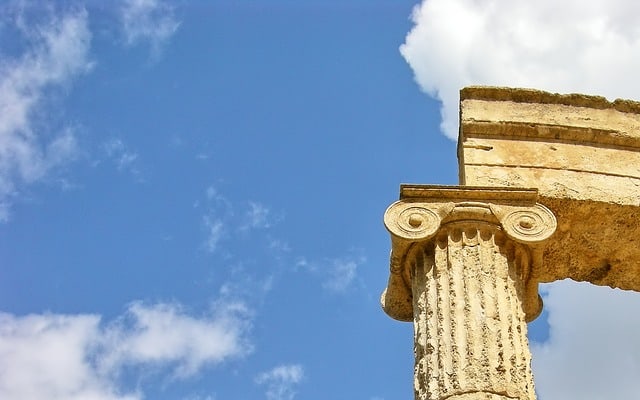It is an interesting fact of life that as we age, an increasing number of ideas that we take for granted are shaken up. I remember as a youngster believing that banks and governments were impregnable fortresses of financial granite. Before immersing myself in the world of finance, I never understood how currencies could fail and the foundations of the economy could shake.
Even after learning about failures of the past such as the Weimar Republic’s famously hyperinflated currency, I did not quite believe such things would take place in my lifetime.
Fast forward from my youth to the financial upheaval of 2008/2009 and I was able to see firsthand how intertwined the banking system truly was and how failure on one shore could have serious implications abroad. I finally understood the pitfalls of fractional reserve banking in a global system. I also gained a respect for sound banking practices; bread and butter retail lending to people who can afford their payments simply makes good sense.
Table of Contents
PIIGS
Through the financial crisis I learned about the “PIIGS”, which is an acronym for the five economies including Portugal, Ireland, Iceland, Greece, and Spain. During the 2009-crisis period, it seemed every day there was a new headline regarding which of the economies was going to fall first. Greece was often viewed as the weakest link, though it was apparently saved through a series of government and central bank interventions.
The Problem Was Never Solved
Now, years from the depths of the financial crisis, we are back at ground zero with Greece on the verge of catastrophe. European officials have decided against extending the country’s bailing program. With the looming Tuesday deadline for Greece to make a payment to the International Monetary Fund, the clock is near midnight on this charade.
As an emergency measure, the Greek government has closed Greek banks and set a limit of 60 Euro withdrawals from ATMs. Such measures are taken only in extreme situations and have clearly been done to prevent a run on banks which the public would rightly perceive to be in serious jeopardy of failing.
Perspective
Let us not forget that this scenario has been playing itself out for years now in Greece. Frankly, it has become a very tired storyline. If Greece fails, I will consider my own investments which are largely solid companies with well-covered dividends to be just fine. In fact, if anything I am considering putting more money to work.
Many of the stocks I follow are down by 2% or even more today, which makes things interesting. Nevertheless, I am prepared to wait to see what happens tomorrow before pulling the trigger. If stocks rebound, big deal. If they plummet some more, my trigger finger might get the better of me.
So, what will I be looking for? I wouldn’t mind adding a few shares of a Canadian bank or two at this juncture. Whatever is happening in Greece, I feel, will be several ripples away from having a lasting (twenty years out) impact on the Canadian economy. I also have my eye on the healthcare field which will, I believe, be just fine whether the economy of Greece falls off the map or not.
Conclusion
Remember to think long term. The media loves hyperbole. A great newscaster will never miss an opportunity to spread doom and gloom. As investors our job is to work through the noise and find ways to profit, come what may.
When I checked the market today after my tennis match and saw red figures, I smiled. Owning high quality stock allows me to enjoy the turbulence. The only decision to make is what else to buy.
– Ryan
How are you handling the turmoil in Greece?
Pictures courtesy of pixabay.com



Thanks for sharing this info. it’s really nice.
Hi Michael,
Thank you for reading the article and taking a moment to comment.
Take care,
Ryan
Thanks for sharing this info. it’s really nice.
I’m glad you enjoyed the article, Michael.
Take care,
Ryan
I’m like you two guys! I don’t care about Greece and I’m more than happy to see the stock market going a little in the red… if only my 8000$ transfer could finally be settled by my financial institutions… it takes eons just to transfer money from one FI to another. I’m craving to buy some stocks. It’s been a while already!
Allan recently posted…June 2015 : passive income update. Another solid month!
Allan,
That’s right. Greece may give us some opportunities and that is about where it ends. I would expect anything seriously catastrophic to get backstopped by the large world players.
Transferring money can definitely be a painfully slow process… just remember that with our strategy we are dealing in decades. A few days won’t make a difference when all is said and done.
– Ryan
They way I’m handling the Greece debt crisis is by simply doing what I have been doing all along. Make my regular monthly investment in top quality dividend stocks and tune out all the noise. As you stated, we’ve been here before and nothing was resolved. There will always be a crisis, Ukraine, Russia, ISIS, fiscal cliff, govt. shutdown, PIIGS and now Puerto Rico and Chicago among others, debt ceiling, strong dollar, weak dollar, record oil prices, oil crash, rising interest rates, etc. etc. Turn it OFF! Sure let’s buy some Canadian banks stocks 🙂
DivHut recently posted…Building A Financial Safety Net: My Real World Experience
DH,
You got it, brother. People waiting for “clear sailing” to invest are simply never going to invest. It is important to put these “events” in perspective and realize that no matter what happens, there’s a damn good chance people will still be buying/selling goods and services two decades from now – and probably a heck of a lot more than they are today.
Thanks for stopping by and commenting,
– Ryan